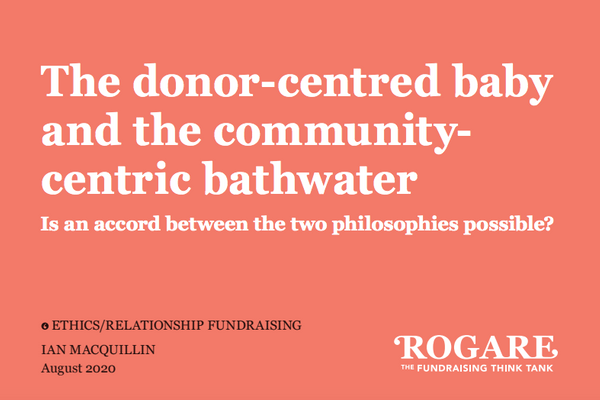
Clash of donor-centred & community-centric fundraising philosophies explored in new paper
August 19, 2020
Fundraising ribbon embeds ethics at the heart of Italian fundraising profession
September 9, 2020The Covid-19 pandemic has created a £10 billion funding gap in the UK that will cost the sector 60,000 jobs without more support, and see more than half of charities cut services, research has found.
The latest Charity Sector Tracker, conducted in August and published by Pro Bono Economics in partnership with the Chartered Institute of Fundraising and Charity Finance Group, surveyed 455 charities and found that that 19% have already made redundancies. At the moment, 23% plan to make further cutbacks once the government’s furlough scheme comes to an end, rising to 44% among the UK’s largest charities. Almost one-in-ten (8%) of large charities anticipate reducing their headcount by 25-50%.
More than 5,000 job losses have been announced in the UK charity sector since the start of the pandemic, but Pro Bono Economics estimates that the true figure is closer to 25,600 and that another 34,100 charities sector employees may have lost their jobs by the end of the year.
In addition, 58% of the charities surveyed believe they are likely to have to reduce their service provision over the next six months, just as demand soars.
This pressure is expected to last into 2022, with 70% expecting it to take more than 12 months for their income to return to pre-crisis levels and 26% overall thinking the climb back will take more than two years. This is greater among large charities, with 40% thinking it will take this long, compared to 27% of medium, and 18% of small organisations.
Matt Whittaker, CEO of Pro Bono Economics, said:
“With the recession biting and unemployment rising, the social sector has never been more needed. But an alarming proportion of jobs in the sector are now at risk. That means many of the charity workers who have provided vital support to millions across the country since the start of the Covid crisis are facing a very uncertain future.”
“Navigating this period rests in part on getting more resources into the sector, from government, from existing funders and from members of the public. But it also rests on reversing the public policy neglect the sector has suffered from over many years. That’s particularly true if civil society is to play the pivotal role that it should do in the country’s recovery from the pandemic, helping to fulfil the Prime Minister’s pledge to ‘build back better’.”
Daniel Fluskey, head of policy and external affairs of the Chartered Institute of Fundraising, added:
“The findings from this research show just how challenging the situation is for charities across the UK. The stark figures on reduction of services and job losses are of real concern and will have a real impact for the people, families, and communities who rely on charities every day. At a time where so many people are struggling, we are seeing charities’ ability to help them severely reduced, not just in the short-term, but over the months and years ahead.”




